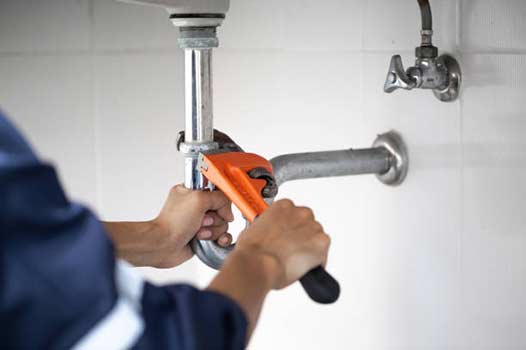
Below we get into the impact of damaged or broken plumbing on your utility bill. Plumbing plays a crucial role in our daily lives, supplying water for various purposes and ensuring proper drainage. However, when it becomes damaged or broken, it can lead to significant financial consequences, reflected in your monthly utility bill. We will provide a detailed analysis of how plumbing issues can affect your utility bill and offer insights on how to mitigate these impacts.
The Hidden Leaks
One of the most common causes of inflated utility bills is hidden leaks within your plumbing system. These leaks can be tricky to detect as they often occur behind walls, under the floors, or in less frequented areas of your home. However, they can be detrimental to both your budget and the environment.
Hidden leaks continuously waste water, leading to a substantial increase in your water bill. Even a small leak, such as a dripping faucet or a silently running toilet, can waste several gallons of water per day. Over time, the accumulated wastage can drastically impact your utility expenses.
Moreover, hidden leaks also put unnecessary strain on your plumbing system, potentially leading to further damage. This can result in more significant repairs and higher utility bills in the long run. Therefore, it is essential to promptly detect and address hidden water leaks before they cause further financial implications.
Common Plumbing Problems
Understanding common plumbing problems can help you identify potential issues before they escalate and impact your utility bill. Let’s explore some of the most prevalent plumbing problems:
1. Leaky Faucets
A dripping faucet might seem inconsequential, but the constant water wastage can add up quickly. It is estimated that a single dripping faucet can waste up to 3,000 gallons of water per year. By addressing this issue promptly, you can save both water and money.
2. Running Toilets
A running toilet is not only annoying but also a significant contributor to inflated utility bills. The constant flow of water from a running toilet can waste hundreds of gallons of water every day. Identifying and fixing this problem can lead to substantial savings in your utility expenses.
3. Burst Pipes
Burst pipes can lead to significant damage, both to your property and your finances. When a pipe bursts, it can result in a sudden spike in your water bill. Additionally, the water lost from burst pipes can cause damage to walls, floors, and furniture, further increasing the financial burden.
4. Clogged Drains
Clogged drains not only disrupt your daily activities but can also lead to water wastage. When water cannot flow freely through the drains, it may back up and eventually cause leaks or burst pipes in the plumbing system. Addressing clogged drains promptly can prevent these issues and help keep your utility bill under control.
The Financial Implications
The financial implications of damaged or broken plumbing can be significant. A high utility bill can put a strain on your monthly budget, potentially causing financial distress. Let’s explore how plumbing issues can impact your financial well-being:
1. Increased Water Bills
As mentioned earlier, plumbing issues, such as hidden leaks or running toilets, can result in increased water bills. The constant water wastage can quickly accumulate, leading to significantly higher expenses. By addressing these issues promptly, you can avoid unnecessary financial burdens.
2. Additional Repair Costs
If plumbing issues are left unattended, they can worsen over time and result in more significant damage. This can lead to costly repairs or even the need for complete plumbing system replacements. By proactively addressing minor plumbing problems, you can avoid these additional expenses.
3. Property Damage
Burst pipes or leaks that go unnoticed can cause extensive damage to your property. The repairs required to fix the damage can be costly and may also involve replacing damaged furniture, flooring, or walls. Timely detection and repair of plumbing issues can save you from these unnecessary expenses.
How to Mitigate the Impact
Now that we have discussed the potential impact of damaged or broken plumbing on your utility bill, let’s explore some effective ways to mitigate these impacts:
1. Regular Maintenance
Schedule regular maintenance checks for your plumbing system to identify and address any potential issues before they escalate. A professional plumber can inspect your pipes, faucets, toilets, and drains to ensure everything is in proper working order.
2. Prompt Repairs
If you notice any plumbing problems, such as leaks or clogs, address them promptly. Ignoring minor issues can lead to more significant damage and higher expenses in the long run.
3. Invest in Efficient Fixtures
Consider replacing old and inefficient pipes with water-saving alternatives. Low-flow faucets, toilets, and showerheads can significantly reduce water consumption, resulting in lower utility bills.
4. Insulate Pipes
In colder climates, insulating your pipes can help prevent them from freezing and bursting during winter. By protecting your pipes, you can avoid potential damage and costly repairs.
5. Regularly Check Water Meter
Monitor your water meter occasionally to detect any sudden increases in water usage. If you notice a significant change without any apparent reason, it may indicate an underlying plumbing issue that needs to be addressed.
To Conclude
Having a well-maintained plumbing system is essential not only for your convenience but also for your financial well-being. Damaged or broken plumbing can lead to inflated utility bills and additional expenses, such as repairs and property damage. By understanding common plumbing problems, promptly addressing issues, and taking preventive measures, you can mitigate the impact on your utility bill. Regular maintenance, prompt repairs, and the use of efficient fixtures are key to ensuring a well-functioning plumbing system and keeping your utility expenses under control.

